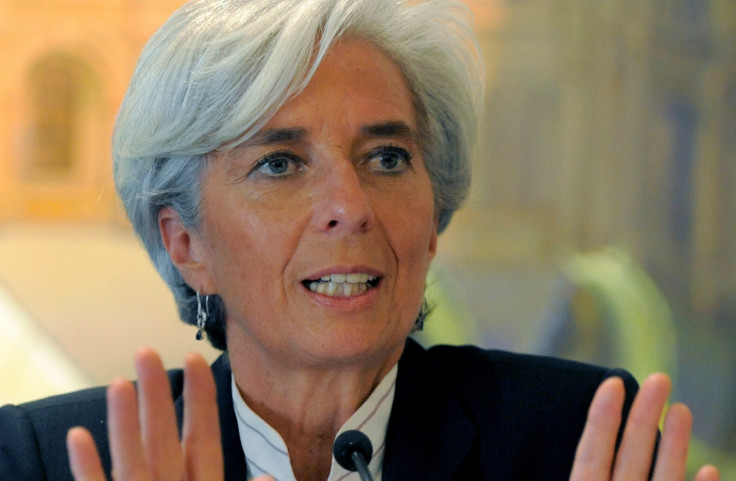GCC Economies Best Performers, But Must Improve Policy Frameworks: IMF Chief Christine Lagarde

Gulf Cooperation Council (GCC) countries are the best performing economies as they meet oil sector challenges with strong fiscal buffers, International Monetary Fund managing director Christine Lagarde has said.
However, fresh challenges could emerge beyond the near term and most countries in the region may have to improve their policy frameworks to better manage the economies, Lagarde said.
Addressing a meeting of the region's financial ministers and central bank governors in Kuwait Lagarde said: "The GCC economies have been amongst the best performing in the world in recent years. The near-term outlook is positive, with growth of about 4.5% projected in 2014–15."
"There is scope to strengthen policy frameworks in the GCC to support economic management. On the fiscal side, this could involve reforms to the annual budget process and the introduction of a medium-term budget framework."
The IMF said the GCC's growth in the non-oil sector is expected to remain strong at about 6%, driven by large investments in infrastructure and private sector confidence.
"Oil prices have fallen by about 25% since the summer, and this will affect fiscal and external balances in the region."
"While the substantial fiscal buffers that have been built up in most countries over the past decade will allow governments to maintain spending plans in the near-term, in almost all GCC countries it increases the urgency for fiscal consolidation in the medium-term."
Lagarde said the introduction of a formal macro-prudential policy framework would clarify responsibilities and coordination among regulators.
"The future success of the GCC economies will be closely tied to ongoing efforts to boost the employment of nationals in the private sector and to increase economic diversification," she said.
"Many policies are being implemented to achieve these objectives, and important progress is being made. Nevertheless, getting the economic incentives right so as to encourage workers to seek employment in the private sector and firms to produce in exported-oriented sectors is a key missing element of policies to date."
© Copyright IBTimes 2024. All rights reserved.






